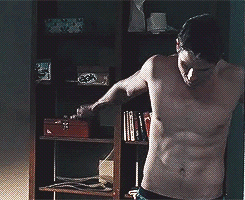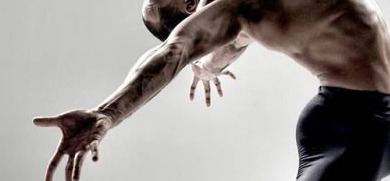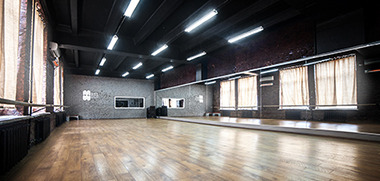#programme booklet with big issue
Text
the way matt said "i can gauge how alex is doing, if he's having a good show or not even by looking at the back of him."
#GOD I WISH I HAD FRIENDS#also he said the way he was basically like we're best friends we have more in common than just the band and the success etc#that's why they are still together and still around#I'M VERY NORMAL WJY U ASK#arctic monkeys#matt helders#alex turner#the car tour#2023 stadium tour#programme booklet with big issue
250 notes
·
View notes
Photo










LLOYD
"Black coffee no sugar, Mr Rivers?" Bright blue eyes peered over the top of the computer monitor as the door into the foyer closed softly in Lloyd's wake. Turning to the receptionist, Lloyd smiled tightly and shook his head. He hadn’t expected anyone to be here to this early and had brought his keys in anticipation to open up but the over-joyous brunette had clearly beaten him to the mark.
“No thanks, Mia. Maybe in a bit.” He hiked his bag higher on his shoulder, tucking his thumb under the strap. Mia was fussing with a paper note stuck to the corner of the screen.
“Mrs Garcia rang yesterday. She’s had to cancel her session today. I won’t discuss the gory details of why...” The young woman flashed a bright smile and stuck the post-it note on the countertop. “She also said she’s devastated she won’t get to see you before you go. She’ll miss how... let me quote this correctly... how well you stretched her out...”
“I’ve never seen someone so incapable of lunging.” Lloyd followed the woman’s comment quickly before picking up the post-it and pressing the sticky surface against his bag. “Thanks, Mia.”
Turning away, Lloyd pushed open the double doors and waited for a few seconds as the lights burst into life above him. One after another. How long had this been his routine for? How many months? Stark white walls and soft indigo accents. Wellbeing posters. Bright, airy rooms. The scent of chlorine. The wealthy and delightful clientele of Morro Bay who sought to better themselves and ward off the wrongs of the world within the walls of the spa and fitness centre. How eager people were to put money in his pocket at the promise he’d make them more appealing. They didn’t care about the ins and outs of his nutrition programmes or his booklets about body groups... they just wanted a quick fix to make sure they looked good at the next big thing.
Self-absorbed. Shallow. Conceited. Fragile vanity of people desperate to be pleased by the reflection but unwilling to reflect on the person who stared back at them. But it paid. It paid well. Pushing open the door at the end of the corridor, Lloyd was instantly engulfed by quietude. His own reflection stared back at him in the large mirrors that lined the dance studio. He dropped his bag to the floor with a thud and crossed to the windows, pushing the furthest one open. The ocean glistened under the rays of the rising sun. Sandstone shades and honey hints; ochre overtones and tangerine tints. The air was cool; cool for December in Southern California anyway, but that wasn’t an issue. For a moment Lloyd let himself soak up the breeze, still unaccustomed to the sensitivity his more exposed scalp held to temperature.
Moving back across the room, he pulled his bottle from his bag and set it down on the wooden floor. His kicked off his shoes and socks and set them neatly on the nearby rack. His bag and t-shirt followed. He pulled his phone from his pocket and tapped the screen a few times before setting it atop of the speaker. As he stepped into the middle of the room, his eyes fell closed and he began to roll his neck. Slowly dropping his head to the side, and then back, and then to the other side before dropping his chin to his chest. Again and again until the motion descended into his shoulders. Muscular. Strong. Lithe. Through his broad chest. Narrow hips. His breathing was slow as he shook out his legs, waiting for the warmth to seep through his muscles.
“Dancing?” His mother had been almost shocked as she’d looked at her six year old son across the dining room table. Derek was stabbing his fork loudly into his chicken steak next to her.
“Yes.” The young boy stared at his mother with big brown eyes, completely unaware why she hadn’t appeared to have heard him. He’d even said it louder than Derek was being!
“What you wanna fucking dance for?” His father tossed down his magazine on the table and sent his own fork flying. It clattered noisily on the floor. His mother sighed.
“I watched it on tv.”
His father had a retort before Lloyd could even finish. Saw it on tv? There was all manner of shit on tv. Did he wanna do those too? He could play football like his brother. Except Lloyd knew Derek didn’t like football. Derek liked bikes. But his father didn’t know what his sons liked... you had to be present to learn those kind of things.
Lloyd pushed his hands back across his hair, eyes closed and slowly flooding his lungs with air. Why did anyone dance? To free themselves? To separate themselves from the world around them and simply create with their mind and body cohesively? To perform? To pour life into music and invigorate a room full with audience members? Except as Lloyd leant his body backwards it was only him, the sound of music and the rising higher in the sky beyond the windows.
The sound of his bare foot brushing against the cool wooden floor was practically non existent as his whole body turned on its axis, rotating in turn to embrace to motion. His arms stretched up, hands open to the ceiling before he pulled them back into her chest.
“It’s a job! What do you suppose we do? There’s no one here.” Lloyd all but shouted over the din of Jamie’s silence. Her face was fearful, taut with concern, but her eyes - the eyes that bore such similarity to his own - were strikingly unemotive. all but empty. “I am trying to give us somewhere and...” He fisted his hands into his thick hair. The scar on his bicep was vivid. A mere ‘scrape’ from the crash.
Nothing in comparison. An echo. A memory. A muted recollection of the thundering footsteps as Lloyd had thrown himself over the bent and broken crash barrier and all gone heels over head sliding down the slope as he drew closer and closer to the smouldering motorbike sections... the leather jacket. “Do you want to stay?”
Jamie remained silent. Empty eyes unblinking.
“Jamie! Will you just fucking listen?”
“Why would I stay?”
Lloyd’s breath fell in sharp pants as he pressed his palm hard against the floor, feeling the hard pressure of the laminate against his chest. He pushed himself onto his back and stared for a few long moments at the ceiling.
And then there was her. Eyes so vivid that he’d never forget them for a single day that he lived. Like a lighthouse in the storm whenever Lloyd closed his eyes for a moment too long. How long had it been? Since he’d made the journey back to his home and their paths had crossed. The sand beneath his feet. The sound of her laugh in his ears.
Pushing himself up into a sitting position, he stared at the man sat in the mirror. Hair too short. Uncertain eyes. Nail marks and scratches all across his hairline. A hand ran down his face and when he looked straight ahead once more, he wasn’t stood alone. His head wheeled around and there was nothing but the stillness of the studio to answer back. Yet, when he turned back to stare at his reflection; her shape was unforgettable as it settled beside him.
“I don’t understand...” He whispered as he fought to wrench his eyes away from the mirror and lost. Those eyes. Enchanting and captivating. Bold and beautiful. A steady smile that split perfect lips.
He lifted his hand to rub across his head. His eyes clamped shut but the image burned in his eyelids. Pushing himself up, he threw his body to the left and pushed off with his foot. He was light on his feet for a man of his size and he turned and he turned. His hands stretched up before he pulled the world into his chest. He span again, planted his foot hard and leapt. As he landed, he breathed hard before shaking his head and tracking to the other side of the room.
He moved again, distributing his weight between his feet, lowering his hands to the floor before tucking them to his chest and thrusting his palms to the ceiling. He pushed off harder. Turned as he landed. Pushed off again. As his foot hit the floor as he landed, it was forced from beneath him and he crashed to the ground. There was a cold liquid beneath his back and the side of his water bottle dug into his hips.
Wincing, he pressed his hand over his ribs with one hand and opened one eyes to glare at the ceiling. What was he doing? Heading back to Toronto...? How long had it been? It would be so cold. He’d left California for a new life all those years ago and then he’d run again... so why was he going back? Her? Jamie? Harley?
Groaning loudly, he pushed himself into a sit and stood the bottle up. “Fucking idiot...” He breathed as he ran his hand down his face. When he caught sight of himself in the mirror again he was alone. Only surrounded by the solitude of the studio and the uncertain turmoil in his head.
1 note
·
View note
Text
The Chase Files Daily Newscap 2/10/2019
Good MORNING #realdreamchasers! Here is The Chase Files Daily News Cap for Sunday 10th February 2019. Remember you can read full articles for FREE via Barbados Today (BT) or Barbados Government Information Services (BGIS) OR by purchasing by purchasing a Sunday Sun Nation Newspaper (SS).
HARD START –The 2019 sugar harvest might have a bitter start if private farmers are not paid the $7 million owed to them from last year’s harvest. Barbados Sugar Industry Limited (BSIL) chairman Mark Sealy told THE NATION that the lack of payment had some farmers in a financial bind, which if not corrected, would significantly impact the harvesting of this year’s crop. “We received payments for 2017’s crop but not last year’s. We have not gotten support – Enhanced Cane Replanting Incentive Scheme [ECRIS] or the final payment from the Barbados Agricultural Management Company [BAMC], which is outstanding. We were supposed to get those payments in September last year and it is now 2019. “We have a crop coming up to start and it is going to be very difficult for us because the farmers have no money left. Some of them could not afford fertiliser for the plants [cane] and there are a lot of farmers whose cash flow has been completely depleted,” the BSIL chairman said. (SS)
SOUTH COAST RESTAURANTS WOO DINERS BACK – After putting with up with a less than desirable situation on the south coast for some time, a number of restaurants along the once sewage-plagued tourist belt came together in an effort to promote dining in that part of the island. Through a programme dubbed Dine South – Passport to the South, individuals were able to eat at eight different restaurants between October and December and win weekly prizes, with the opportunity to win big in a final draw. Under the programme, which was primarily designed to promote the south coast as the culinary capital of the island, individuals would travel to the participating restaurants with their “passport”, a booklet, in which they would receive a stamp from each location after dining. In the end they had the opportunity to enter for a grand prize draw, and on Friday three lucky diners walked away with the top prizes. Prior to presenting the winning diners with their awards at the Naru restaurant and lounge, Co-owner of that eatery Lisa Taylor, who is responsible for conceptualizing the idea, said getting the other restaurants and sponsors to participate was easy. In addition, the enthusiastic restaurateur said she was encouraged by the participation from Barbadians and was already thinking about a “bigger, better and better organized” south dining initiative for 2019. Minister of Energy and Water Resources Wilfred Abrahams lauded the private sector companies for their efforts in promoting dining on the south coast. Acknowledging that the last couple years had been very difficult for south coast businesses, Abrahams said he was aware some had to close and others had to “stretch themselves to keep going”. However, thanking the restaurants and other businesses in the area for their patience while Government tackled the issue, Abrahams, whose ministry was responsible for ridding the area of the raw sewage, said it was an issue he just had to fix in the shortest possible time. “We could not let any other businesses close,” he said. “I am glad that you took the initiative, once the problem had been abated, to put a programme out there and to publicize yourself and generate business for yourself,” said Abrahams. He said he believed the Dine South initiative could be a springboard for businesses on the south coast to generate business during the off-peak tourist season. “Barbadians have money in their pockets as well. Barbadians are valuable customers. Let us not just look to the people coming in to drive our business, we have to look as well to ways to get Barbadians into our business places and to spend money with us . . . your business should not suffer because the tourist season is low,” said Abrahams. After about two years of having to endure raw sewage often bubbling up in the streets, which was accompanied by a foul stench, Government was finally able to put a temporary fix in place at the start of this year. Also lauding the south coast restaurants for their efforts was Chief Executive Officer of the Barbados Tourism Marketing Inc. William Billy Griffith, who said the Dine South programme was a demonstration of “the power” of the private sector. “This is exactly what we are trying to encourage and I salute every one of you. I think the food element in Barbados is a significant one,” said Griffith, who promised an elevated Food and Rum Festival this year. President of the Caribbean Hotel and Tourism Association (CHTA) Patricia Affonso Dass echoed similar sentiments, adding that the initiative spoke to the “power of partnerships”. “It is really what the south coast of Barbados is all about. I know we have, for a long time told the story that the west is best, but the south is where it is at,” said Affonso-Dass. “At the end of the day, the data is telling us that guests want a more real experience where they want to get out into the communities in which they visit and they want to experience the local environment and I think you guys are giving them the opportunity to do that by showcasing what local small business is all about,” she said. The eight restaurants taking part in the Dine South event were Naru Restaurant and Lounge, Salt Cafe, Ackee Tree restaurant, Tapas, Chutney’s, Champers, Blakey’s Bar and Restaurant and Bubba’s. There were several other partners and sponsors for the initiative. Walking away with the grand prize was Dean Douglin, with a cruise for two aboard the Carnival Fascination. Second prize went to Nicole Hustler, who got a South Beach staycation, while Mikeila Carrington captured the third place prize of a Dine South experience for two. (BT)
GUAIDÓ VOWS TO OPEN AID ROUTES WITH VOLUNTEERS – Venezuelan opposition leader Juan Guaidó has vowed to open humanitarian aid routes into the country in defiance of the government. Guaidó, who has declared himself interim president, called on volunteers to help with distribution and said his plans would be ready next week. Footage shows soldiers blocking a key bridge at the border with Colombia. A government official called aid “a Trojan horse” and said the country had a duty to defend its borders. “According to our constitution, we have the right and the duty to defend our borders peacefully,” said Freddy Bernal. He accused US president Donald Trump, who has endorsed the opposition leader, of just wanting to exploit Venezuelan oil. WHY IS AID NEEDED? Millions of people have fled Venezuela as hyperinflation and other economic troubles render food and medicines scarce. Since the outbreak of the current political crisis, Washington has announced sanctions on the Venezuelan industry. President Nicolás Maduro, who has the support of the army, has rejected letting foreign aid into the country. Last week a tanker and cargo containers blocked the Simon Bolivar International Bridge, which links Venezuela to its more stable neighbour to the west. The blockages were still there on Friday, and many soldiers were seen standing guard. Guaidó does not control any territory in Venezuela so, instead, he is planning to set up collection centres in neighbouring countries to which Venezuelans have fled. He said he wanted to set up an international coalition to gather aid at three points, and press Venezuela’s army to let it into the country. Food and medicine organised by the US federal government’s USAID agency arrived on Thursday and have been stored at a warehouse on the Colombian side of the border. The agency has been bound up in international politics before – Russian expelled it in 2012, citing “attempts to influence political processes through grants); and Bolivia expelled it the year after, accusing it of seeking to “conspire against” the Bolivian people and government. Both Russia and Bolivia are allies of President Maduro in the current crisis. HOW FAR WILL GUAIDÓ GO? Guaidó has warned many Venezuelans are in danger of dying without international aid. Speaking to AFP news agency, he said the groups he was putting together would “make a first entry attempt” at the blocked bridge when they had gathered enough supplies. He said he expected this to happen next week. It would be “almost miserable at this point of huge necessity” for the military to block any convoy entering, he said. A number of Venezuelan leaders have also appealed to the military to allow aid lorries to cross into the country. Asked whether he would authorise the intervention of foreign military forces, Guaidó said: “We will do everything possible. “This is obviously a very, very controversial subject, but making use of our sovereignty and, within our jurisdictions, we will do what is necessary.” WHAT’S THE BACKGROUND TO THE CRISIS? In January, Maduro was sworn in for a second term following disputed elections which many opposition leaders did not contest because they were in jail or boycotting them. Guaidó, who is head of Venezuela’s National Assembly, declared himself president on January 23. He says the constitution allows him to assume power temporarily when the president is deemed illegitimate. On Saturday he said protests would continue until his supporters had achieved “freedom”. (BT)
CALL FOR GUN CRIME CENTRE – A law enforcement advisor from United States has recommended that the Caribbean establish a Crime Gun Intelligence Centre to deal with gun smuggling and gun crimes. Jean-Marc Behar, who worked with four Caribbean countries, including Jamaica between 2013 and 2017, assisting with combating firearms trafficking and firearms violence, said there was a need for a regional approach to investigating the illicit firearm trade. Last year, he submitted a detailed report on the establishment of such an organisation to the Association of Caribbean Commissioners of Police for dissemination to commissioners, but has not received any response regarding his proposal. Behar said given the upsurge in firearm-related crimes across the Caribbean, the centre was absolutely necessary. (SS)
POLICE: BE VIGILANT WHEN USING ATMS – The Royal Barbados Police Force is asking members of the public to be vigilant when using ATMs. Not only should you consider your physical safety when approaching, attending or leaving ATMs, but we caution you to pay special attention to the transactions which you are preforming and to be observant of the receipts and account balances, police said in a statement. “If any unusual activity is noticed or suspected or you have used any ATMs recently and you suspect any unusual activity with your account, it is very important you contact your banking institution,” it continues. (BT)
ROMANIANS CHARGED WITH MONEY LAUNDERING –Two Romanian nationals charged with money laundering are scheduled to return to court this week. Thirty-five-year-old Gheorghe Dumitru Durdea and 30-year-old Sorin Ghiriti were also charged with going equipped, while Ghiriti had a separate count of theft. They appeared before Magistrate Kristie Cuffy-Sargeant in the District “A” Magistrates Court yesterday and were remanded to HMP Dodds. Ghiriti pleaded guilty to theft and was fined $1 000, payable by Friday, or four months in prison. He is scheduled to reappear at the District “A” Magistrates’ Court on Friday and the District “E” Magistrates’ Court on Tuesday. They were not required to plead to the indictable offence of money laundering. Ghiriti and Durdea are also scheduled to appear at Oistins, Magistrates Court on Wednesday. (SS)
RETURN KILLER FOR RESENTENCING – The Court of Appeal of Barbados has ordered that a convicted murderer, Carlton Junior Hall, be taken back to the Supreme Court for resentencing at the earliest opportunity. The Appeal Court, led by Justice Andrew Burgess, and comprising Justice Kaye Goodridge and acting Appeal Justice Margaret Reifer, handed down the decision after dismissing an appeal by the killer, who had said his conviction was tainted by a less than satisfactory eyewitness’ identification during the crime. The Court last month dismissed Hall’s appeal against the conviction, saying the presiding judge had adequately instructed the jury in the two-week murder trial. The Court vacated the death sentence and ruled he be taken back to court, based on the recent decision by the Caribbean Court of Justice (CCJ) that all persons convicted of murder and sentenced to death pursuant to Section 2 of Barbados’ Offences Against the Person Act, or who have had their mandatory death sentences commuted to life imprisonment, be put back with reasonable expedition before the Supreme Court for resentencing. (SS)
ENGLAND FORCED TO LABOUR AFTER PAUL STRIKES – West Indies found success hard to come by but England were forced to labour in the opening session of the third and final Test at the Darren Sammy Cricket Stadium here Saturday. At lunch, the visitors had reached 46 for one, after play was extended to 12:30 p.m. to compensate for a 25-minute rain-break. Left-hander Rory Burns was unbeaten on 27 and partnered by Joe Denly on four. West Indies’ only success was when seamer Keemo Paul, replacing the suspended skipper Jason Holder, struck with the first ball of his opening spell, getting left-hander Keaton Jennings to edge a drive to wicketkeeper Shane Dowrich for eight off the first delivery after drinks. Jennings had lived a charmed life in adding 30 with Burns, playing and missing on several occasions against the new-ball pair of Shannon Gabriel and Kemar Roach. He survived a chance on three when he was squared up by Roach only for Roston Chase at third slip to grass a regulation, chest-high opportunity. For his part, Burns has so far faced 82 deliveries and struck a single four – a streaky shot just past fourth slip. (SS)
BARBADOS PRIDE FACING A MOUNTAIN – Another lacklustre performance by Barbados Pride allowed the Trinidad and Tobago Red Force to dictate terms yesterday on the third day of the West Indies Four-Day Championship seventh-round match. However, a late evening declaration by visiting captain Denesh Ramdin has offered the home team a remote chance of snatching an unlikely come-from-behind win when play resumes today at Kensington. The Bajans, continuing their first innings from 238 for seven, still 120 runs in arrears, were dismissed after just over an hour for 282, giving up a lead of 76. Inspired by attacking half-centuries from opening batsman Joshua Da Silva and senior players Lendl Simmons and Ramdin, the Red Force, seeking revenge for the defeat inflicted by the Pride in the fifth round, coasted to 247 for six before declaring their second innings. (SS)
ST. GILES READY TO REPEAT – A whopping 82 schools will be contending for the NAPSAC crown this 17th edition which fires off on Monday, but defending girls’ champions St Giles are quietly confidentof making those schools battle for positions two to 82. That confidence did not just evolve from the staging of the 2019 edition’s launch on Thursday at St Giles, in a hall filled with eager athletes and supporters, sponsors and officials, but St Giles, who won the boys’ and girls’ titles in the James Wedderburn Zone, are gunning to repeat while cashing in on “preparation” to excelin the remaining stages. Coach Nikkisha Maynard pointed to good preparation that should place her athletes in a pivotal position to excel.
“We have prepared well and I believe that should see us repeating as zone champions, although a lot can occur between now and the 18th when our zone will be held. “I cannot speak about threats from other schools or athletes. As a coach, I have seen a number of the other athletes but as individuals and I have not seen themas a school unit. (SS)
DRUG EDUCATION AND COUNSELLING SERVICE GETS $75,000 BOOST – The Sandy Lane Charitable Trust made a donation of $75 000 and 10 Lenovo laptops to the Drug Education and Counselling Service this morning at their Roebuck Street, St Michael office. Director of the Drug Education and Counselling Service, Roger Husbands welcomed surprise donation which was made by Pippa Challis and Julian Sacher of the Trust. Husbands said the funds would go towards the development of the organisation’s programmes, research and tracking of students who matured out of the organization. He said the Drug Education and Counselling Services hosted more than 300 participants from the ages nine to 21, who were recommended either from the judicial system, police and probation department, family or friends. He expressed alarm at the increasing numbers within recent years. “One of the things that I see happening immediately with the funds is for us to widen our counselling scope because recently we have been getting over seven referrals a day for youngsters, which means statistically something is happening in Barbados which needs dire attention,” he indicated. The Service has 12 counselors and eight volunteers who mentor the participants. Husbands notes that more social workers and counselors needed to be designated to address the issues facing today’s youth. He said a number of students who committed criminal or deviant acts and involved in drugs use suffered from a mental disorder. He expressed concern about the legalization of marijuana for medicinal purposes and its impact on the youth of the country. “For some drug lords, they are going to lose business because of this ….which can cause the drug lord to look at other drugs to bring in to make the money because drugs is a business,” Husbands said. (BT)
For daily or breaking news reports follow us on Instagram, Tumblr, Twitter & Facebook. That’s all for today folks. There are 324 days left in the year. Shalom! #thechasefilesdailynewscap #thechasefiles# dailynewscapsbythechasefiles
0 notes
Text
Responsibility and openness
Hilary Sutcliffe (RRI specialist) recently made me aware of an article by Arie Rip published in the Journal of Responsible Innovation. At the time of our twitter exchange the article was not openly available, so Stephen Curry (Open access specialist) sent me a copy. The article is entitled ‘The clothes of the emperor. An essay on RRI in and around Brussels’ and provides an insider’s view of how Responsible Research and Innovation (RRI) is faring in Europe.
When reading the article, one paragraph caught my eye: “A recent development in the bureaucracy in ‘Brussels’ may strike at the heart of the fashion of RRI. When in 2015 the new Commissioner Carlos Moedas (for Research and Innovation) came in, he introduced his own approach, the three Os: Open innovation, Open science, Open to the world.”
How many d’you want? Three!
To my shame, I had not come across the three Os until reading that article! And to my utter shame the first thing that came to mind when reading about the three Os was the famous Two Ronnies sketch Four candles. In this sketch a shopkeeper (Ronnie Corbett) is confronted by a costumer (Ronnie Barker) armed with a long shopping list. Finding the items on the list in the old-fashioned hardware store causes some problems, mainly of a linguistic nature. After buying a few items, the costumer “then asks for ‘o’s’. This item causes the most frustration with the shopkeeper bringing a hoe, a hose (‘’Ose! I thought you meant ‘oes!’) and pantyhose to the counter before working out what he wants are the letter O for the garden gate – ‘o’s as in Mon Repos’. The box of garden gate letters is noticeably difficult to get to ….” (Wikipedia) The shopkeeper climbs up a stepladder, gets a box down, puts the ladder away, takes the box to the counter, and searches through it for the letter O. He then asks: “How many d’you want?” And the costumer replies: “Two”.
Making science public: Shadows and light
However, openness is a serious, indeed an increasingly serious topic, as testified by a recent special issue for Science, Technology, & Human Values entitled Data Shadows: Knowledge, Openness and absence, edited by Sabina Leonelli, Brian Rappert, and Gail Davies. On 6 February Sabina Leonelli tweeted “Our special issue on “#Data Shadows” is now officially published – topic sadly prescient of post-truth data erasures”. The issue engages with openness in the context of data production, dissemination and use and focuses in particular on absent, missing, unavailable, or invisible data — what they call ‘data shadows’.
The topic of openness was also central to our ‘Making Science Public’ research programme. When we wrote our proposal around 2011, we observed changing practices in science and politics, including moves to promote greater openness (open access publishing, open source etc). However, we also foresaw that such opportunities for science to be more openly practised and discussed, for governments to promote integrity and transparency in policy making, and for the public to influence political decision-making might also generate a number of challenges and dilemmas.
We expected commercialisation and privatisation to increase in the context of knowledge economies and universities. We anticipated raising concerns about the politicisation of science; we worried about a rise of scepticism in scientific expertise accompanied by moves to choose (alternative) experts to support certain political positions on scientific issues. However, we also hoped that moves to open up science to public participation would, in the end, be changing science and politics for the better. We did not foresee at the time how big the openness movement would become. We also did not foresee how quickly things could change.
Open innovation, open science, open to the world
There is a footnote in Arie Rip’s article on RRI in Brussels, where he points readers to “a lavishly produced booklet’ on ‘Open Innovation, Open science, Open to the World – A vision for Europe’” (published in May 2016). Let’s see how the three Os were defined.
Open innovation: “The basic premise of Open Innovation is to open up the innovation process to all active players so that knowledge can circulate more freely and be transformed into products and services that create new markets, fostering a stronger culture of entrepreneurship.” (p. 11)
This means opening up innovation to users and citizens, but it also “boosting private investment” (p. 23).
Open science: “Open Science represents a new approach to the scientific process based on cooperative work and new ways of diffusing knowledge by using digital technologies and new collaborative tools. The idea captures a systemic change to the way science and research have been carried out for the last fifty years: shifting from the standard practices of publishing research results in scientific publications towards sharing and using all available knowledge at an earlier stage in the research process.” (p. 33)
Here again citizens are important in the context of an increasing emphasis on citizen science.
Open to the world: “Fostering international cooperation in research and innovation is a strategic priority for the European Union so that we can access the latest knowledge and the best talent worldwide, tackle global societal challenges more effectively, create business opportunities in new and emerging markets, and use science diplomacy as an influential instrument of external policy.” (p. 59)
In a speech given at the Royal Society in 2015, Professor Martyn Poliakoff (University of Nottingham) made clear that this is a plea for science without borders (p. 89). He stressed that: “The real risk is to draw new borders”. We have now reached a point in time where these risks have become real and might threaten the openness programme laid out in the brochure.
RRI, public engagement and citizen science
But what about RRI in this new openness agenda? Responsible Research and Innovation is only mentioned twice in this 106 page long brochure. Once on p. 13 in the context of open innovation and once on p. 54 in the context of open science.
Users and citizens are seen as core to open innovation or, as it has now become fashionable to say, to the open innovation ‘eco-system’. They are valuable as sources and targets of innovation, as sources and targets of knowledge transfer and as central points in creating demand for innovations and taking up innovations when they are on the market. ‘Public engagement’ is seen important to all this, as it brings users and citizens into this process of ‘co-creation’. RRI is more or less equated with public engagement, which is quite a narrow view of RRI.
By contrast, when talking about open science, RRI is conflated with citizen science, but also with outreach and public engagement! “Citizens have also funded citizen labs based on open source principles and community access to research. … Citizen Science is often linked with outreach activities, science education or various forms of public engagement with science as a way to promote Responsible Research and Innovation.” (p. 56)
A rather curious image of citizen science emerges here: “And just as people offer spare rooms via AirBnB, why shouldn’t they be allowed to offer spare brain power via citizen science?” (p. 34)
In the brochure’s new vision of the future (set in 2030), citizen science also merges with crowd-sourced science: “Free and open, high quality and crowd-sourced science, focusing on the grand societal challenges of our time, shapes the daily life of a new generation of researchers.” (p. 34)
How many d’you want? Four!
I very much appreciate the value of citizen science (and ‘extreme citizen science‘), but I was a bit surprised to see that potential challenges posed by this citizen science/crowd sourcing/crowd science agenda were not explored, such as problems for research integrity, for the distribution of responsibility, agency and power, for professionalism and expertise, as well as issues of exploitation, potential misuse of publicly gathered data, profit sharing, and so on.
As openness was always part of the RRI agenda, since its inception in about 2011, I also found it surprising that the OOO agenda wasn’t more knitted together with the RRI agenda. Was it because the focus is on “speed and scale” (p. 7) and “maximising impacts” (p. 26)?
In my view, openness should be promoted in tandem with responsibility. To come back to the beginning of this post: Without the emperor’s (new) clothes of RRI, the three OOOs are quite naked. So … (switching story-lines): If somebody asks policy makers or funding agencies: “How many d’you want?” They should say: “Four!” Three Os and an R, as in Responsibility.
Image: Pixabay
The post Responsibility and openness appeared first on Making Science Public.
via Making Science Public http://ift.tt/2katlGa
0 notes